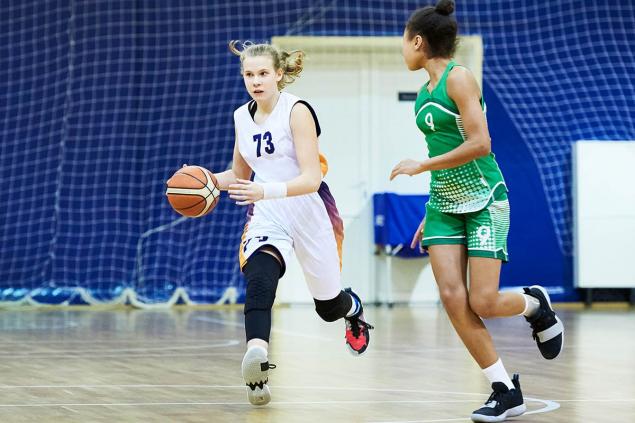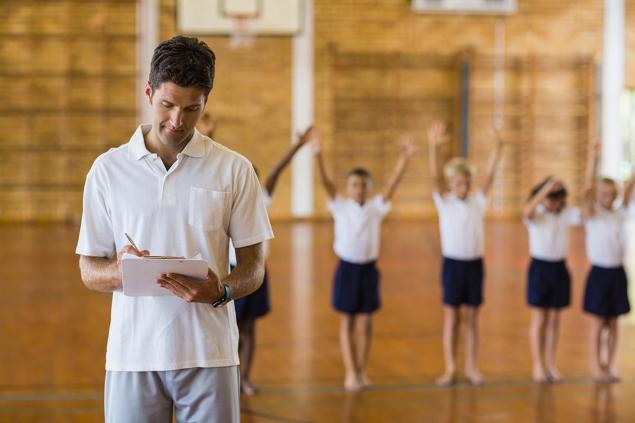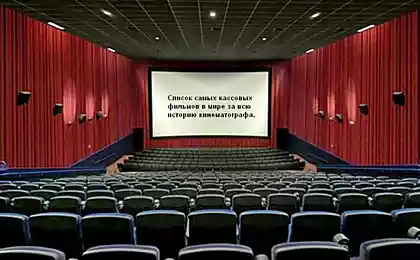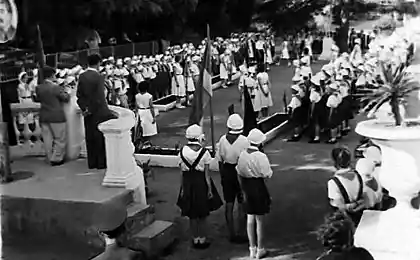254
Once the coach took away from me a sandwich with ham, which my mother made, and I was assigned the nickname “talking ham”.
Involving the child in sport - useful and important. However, when children get involved in sports, they often become hostages. This applies not only to constant employment and exhausting training, but also the ruthless treatment of coaches. From an early age, future champions are taught to suffer for a purpose. And that's considered normal.

We were amazed when we read the story of young Carolina. The girl dared to talk about what she went through and how she was treated by the coach for a long time. Involvement of a child in sports can be different, and this needs to be talked about.
I was 6 years old when my parents gave me basketball. At first I enjoyed playing, but the older I got, the tougher my coach’s demands were. Anatoly Dmitrievich wanted each of his wards to become a champion. He didn’t care how we felt or what we wanted.
I remember going to summer sports camp with the team. At the physical, the girls and I were weighed. When the coach found out I weighed 55 kilograms, he was furious. I knew that for the next few weeks, I was going to be in hell called “Dump Too Much or Forget Big Sports Forever.”

I was 14 years old, and my height has long exceeded 170 cm. But for Anatoly Dmitrievich, I was just a "talking ham." When I was a kid, he took a ham sandwich that my mom made. Since then, this name has stuck with me. Everyone on the team had their own nicknames. At some point, the girls and I got used to the coach not mentioning our names.
Every comment of Anatoly Dmitrievich, however offensive to me, served as a signal. I have to do more and try even better. Otherwise, I don’t have much sport. And I didn't want to let my parents down. By the time I was 14, I hated basketball. It ceased to be a game for me, and became just a set of body movements.

I will never forget that summer in camp. While everyone else was watching their last dreams, I was already studying in the street. “55 kilograms is unthinkable! I probably ate my ham sandwiches again, didn’t I? – Anatoly Dmitrievich woke me up in the morning. And then I drove around the court like this was my last chance to prove to him that I was capable of anything.
It’s probably not surprising that almost immediately after I got home, I fell asleep. I have never complained to my parents about my health. She quietly ate her pain and irritation, suppressed her emotions. But sooner or later everything had to come to an end. And that happened when I got to the hospital.
At that time, I was supported by my friend Olya, who faced the same problems. Since early childhood, she is engaged in gymnastics and in the same way goes to sports camps. She was also unlucky with the coach, but probably even more so than me.
In addition to constant insults and humiliations, Olya suffered from coaching assault for many years. As a child, she was afraid to tell her parents. Not without intimidation during training. When Oli’s mother began to notice that she was acting strangely and was no longer eager to go to class, everything became clear.

Discussions with the coach did not lead to anything. To all the claims, she replied dryly and harshly: “Involving a child in sports is never easy. No weakness or indulgence! If your daughter can't cope, she doesn't belong here.”
Complaining to management about such coaches is simply useless. After all, for the sake of a decent result, you can close your eyes to absolutely everything. And it does not matter that the coach every day mixes his wards with dirt, humiliates them and brings them to tantrums.

Both Ole and I managed to overcome their fear and tell their parents. I don't play basketball anymore, but I decided to go dancing. And Olina’s mother found another coach for her, and now she studies individually.
But that's our story. How many other children and teenagers are still suffering? Is the result really worth it?
In the CIS countries, a huge number of coaches of the old school still work. For them, shouting, humiliation and assault are normal methods of educating rising champions. They just don’t know how to do it because they went through the same school. And someone just pays off unhappy children for their own failures in sports.

But it shouldn't be like that! To instill in your child a love for sports, it is important to listen to him and find an approach to him. When kids really trust their coach, they’re not afraid to make mistakes. Young athletes need support and understanding of what they are doing and why.
We believe that soon there will be no trace of the punitive methods of the past. Children will no longer be afraid to go to another sport. What do you think we need to do about it?

We were amazed when we read the story of young Carolina. The girl dared to talk about what she went through and how she was treated by the coach for a long time. Involvement of a child in sports can be different, and this needs to be talked about.
I was 6 years old when my parents gave me basketball. At first I enjoyed playing, but the older I got, the tougher my coach’s demands were. Anatoly Dmitrievich wanted each of his wards to become a champion. He didn’t care how we felt or what we wanted.
I remember going to summer sports camp with the team. At the physical, the girls and I were weighed. When the coach found out I weighed 55 kilograms, he was furious. I knew that for the next few weeks, I was going to be in hell called “Dump Too Much or Forget Big Sports Forever.”

I was 14 years old, and my height has long exceeded 170 cm. But for Anatoly Dmitrievich, I was just a "talking ham." When I was a kid, he took a ham sandwich that my mom made. Since then, this name has stuck with me. Everyone on the team had their own nicknames. At some point, the girls and I got used to the coach not mentioning our names.
Every comment of Anatoly Dmitrievich, however offensive to me, served as a signal. I have to do more and try even better. Otherwise, I don’t have much sport. And I didn't want to let my parents down. By the time I was 14, I hated basketball. It ceased to be a game for me, and became just a set of body movements.

I will never forget that summer in camp. While everyone else was watching their last dreams, I was already studying in the street. “55 kilograms is unthinkable! I probably ate my ham sandwiches again, didn’t I? – Anatoly Dmitrievich woke me up in the morning. And then I drove around the court like this was my last chance to prove to him that I was capable of anything.
It’s probably not surprising that almost immediately after I got home, I fell asleep. I have never complained to my parents about my health. She quietly ate her pain and irritation, suppressed her emotions. But sooner or later everything had to come to an end. And that happened when I got to the hospital.
At that time, I was supported by my friend Olya, who faced the same problems. Since early childhood, she is engaged in gymnastics and in the same way goes to sports camps. She was also unlucky with the coach, but probably even more so than me.
In addition to constant insults and humiliations, Olya suffered from coaching assault for many years. As a child, she was afraid to tell her parents. Not without intimidation during training. When Oli’s mother began to notice that she was acting strangely and was no longer eager to go to class, everything became clear.

Discussions with the coach did not lead to anything. To all the claims, she replied dryly and harshly: “Involving a child in sports is never easy. No weakness or indulgence! If your daughter can't cope, she doesn't belong here.”
Complaining to management about such coaches is simply useless. After all, for the sake of a decent result, you can close your eyes to absolutely everything. And it does not matter that the coach every day mixes his wards with dirt, humiliates them and brings them to tantrums.

Both Ole and I managed to overcome their fear and tell their parents. I don't play basketball anymore, but I decided to go dancing. And Olina’s mother found another coach for her, and now she studies individually.
But that's our story. How many other children and teenagers are still suffering? Is the result really worth it?
In the CIS countries, a huge number of coaches of the old school still work. For them, shouting, humiliation and assault are normal methods of educating rising champions. They just don’t know how to do it because they went through the same school. And someone just pays off unhappy children for their own failures in sports.

But it shouldn't be like that! To instill in your child a love for sports, it is important to listen to him and find an approach to him. When kids really trust their coach, they’re not afraid to make mistakes. Young athletes need support and understanding of what they are doing and why.
We believe that soon there will be no trace of the punitive methods of the past. Children will no longer be afraid to go to another sport. What do you think we need to do about it?
A couple of annoying words that others constantly write incorrectly, as if mocking
I lay at the house of the Nutella Bank, baked crumbly cookies in 15 minutes, and in an empty glass container I will store cereals.























